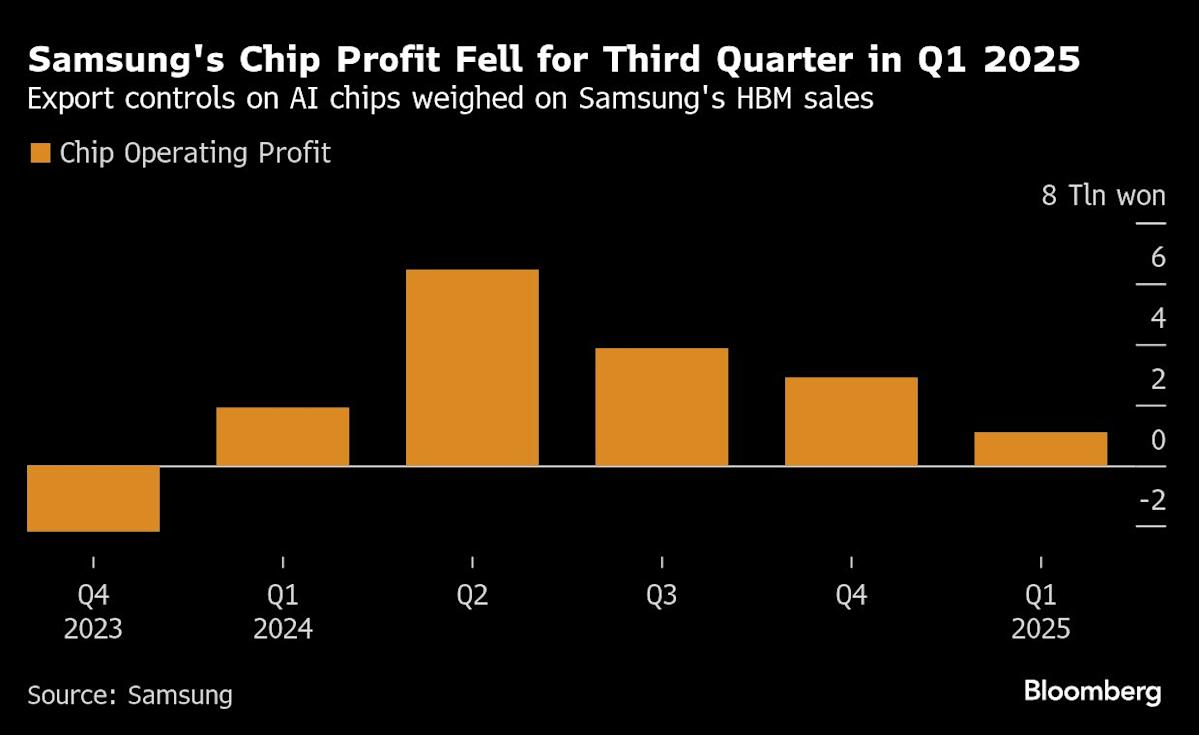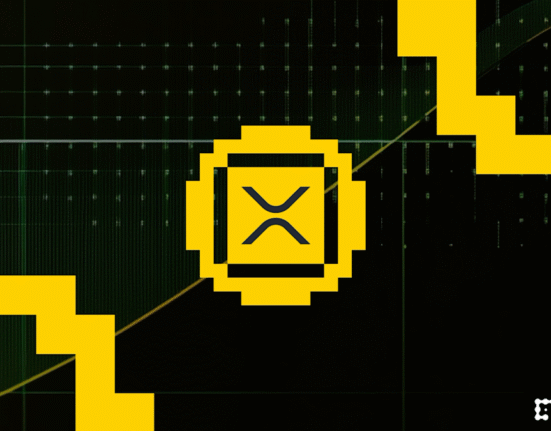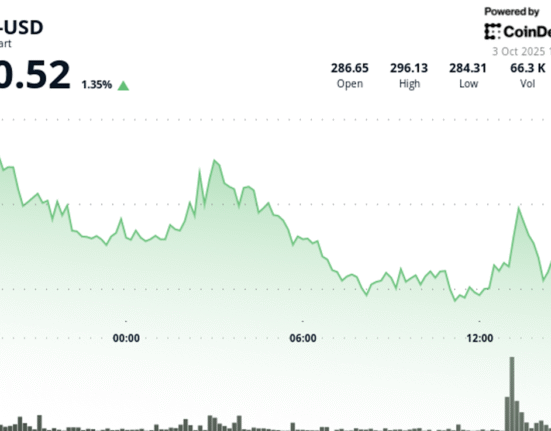(Bloomberg) — Samsung Electronics Co.’s profit fell for the first time since 2023, reflecting the deepening market share losses clouding the memory chipmaker’s prospects in the AI era.
Most Read from Bloomberg
The company reported a sharper-than-anticipated 56% plummet in operating income for the June quarter, which it blamed on inventory writedowns following US curbs on Chinese-bound AI chips. Its shares swung between gains and losses in Seoul Tuesday after the company announced a 3.9 trillion won stock buyback.
The disappointing results underscore how South Korea’s largest company has ceded leadership in the AI market to SK Hynix Inc. in the post-ChatGPT infrastructure boom. Its longstanding rival — along with Micron Technology Inc. — now sells more of the cutting-edge high-bandwidth memory chips paired with Nvidia Corp.’s AI accelerators. Compounding the problem, US restrictions on tech exports to China are hindering a turnaround in its loss-making contract chipmaking operation.
Still, some investors expect the chips-to-smartphone company to have hit bottom over the summer. Nvidia is shifting toward a new generation of memory chips, offering Samsung an opening. The one-time inventory adjustment suggests it wants to start the second half with a clean slate, said Sanjeev Rana, head of research at CLSA Securities Korea.
“This is likely to be the bottom,” he said. “Looking beyond the disappointing results in the second quarter, we expect a sequential recovery.”
The company reported a preliminary operating profit of 4.6 trillion won ($3.3 billion) in the June quarter — the company’s lowest since 2023 and short of analysts’ projections. Revenue was flat at 74 trillion won. The company will provide a full financial statement with net income and divisional breakdowns later this month.
Profit fell after Samsung’s foundry arm, which has relied in part on Chinese demand, booked a one-time inventory cost on unsold AI chips. Usage rates also fell, the company said in an unusual statement issued to explain the worse-than-expected performance. Operating losses in its contract chipmaking business are expected to narrow in the second half of the year on a gradual recovery in demand, Samsung said.
The key for Samsung now is next-generation AI memory.
(Bloomberg) — Samsung Electronics Co.’s profit fell for the first time since 2023, reflecting the deepening market share losses clouding the memory chipmaker’s prospects in the AI era.
Most Read from Bloomberg
The company reported a sharper-than-anticipated 56% plummet in operating income for the June quarter, which it blamed on inventory writedowns following US curbs on Chinese-bound AI chips. Its shares swung between gains and losses in Seoul Tuesday after the company announced a 3.9 trillion won stock buyback.
The disappointing results underscore how South Korea’s largest company has ceded leadership in the AI market to SK Hynix Inc. in the post-ChatGPT infrastructure boom. Its longstanding rival — along with Micron Technology Inc. — now sells more of the cutting-edge high-bandwidth memory chips paired with Nvidia Corp.’s AI accelerators. Compounding the problem, US restrictions on tech exports to China are hindering a turnaround in its loss-making contract chipmaking operation.
Still, some investors expect the chips-to-smartphone company to have hit bottom over the summer. Nvidia is shifting toward a new generation of memory chips, offering Samsung an opening. The one-time inventory adjustment suggests it wants to start the second half with a clean slate, said Sanjeev Rana, head of research at CLSA Securities Korea.
“This is likely to be the bottom,” he said. “Looking beyond the disappointing results in the second quarter, we expect a sequential recovery.”
The company reported a preliminary operating profit of 4.6 trillion won ($3.3 billion) in the June quarter — the company’s lowest since 2023 and short of analysts’ projections. Revenue was flat at 74 trillion won. The company will provide a full financial statement with net income and divisional breakdowns later this month.
Profit fell after Samsung’s foundry arm, which has relied in part on Chinese demand, booked a one-time inventory cost on unsold AI chips. Usage rates also fell, the company said in an unusual statement issued to explain the worse-than-expected performance. Operating losses in its contract chipmaking business are expected to narrow in the second half of the year on a gradual recovery in demand, Samsung said.
The key for Samsung now is next-generation AI memory.











Leave feedback about this